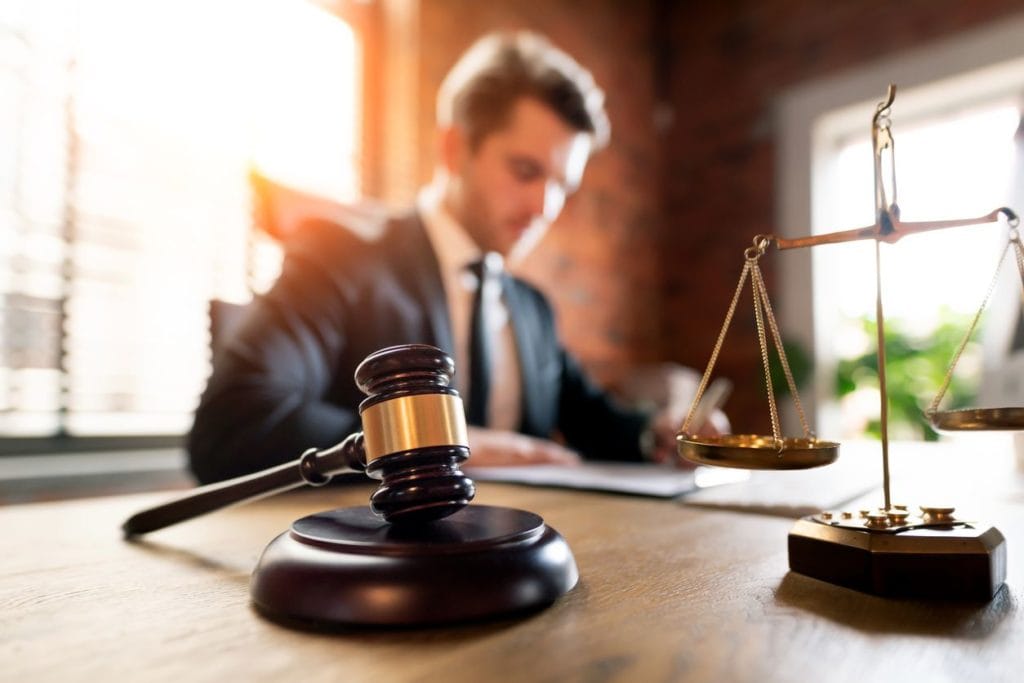
Facing false accusations can be an overwhelming and distressing experience. Whether it’s being falsely accused of a crime, defamed in public, or dragged into a civil lawsuit based on fabricated claims, the repercussions can be severe and far-reaching. In such situations, knowing your rights and understanding the legal recourse available to you is crucial. This guide aims to shed light on what to do if someone falsely accusing you, how to defend yourself against false accusations, and the legal avenues you can explore to seek justice.
Understanding False Accusations:
False accusations can take various forms, ranging from defamation and slander to malicious prosecution and false police report to a law enforcement. Regardless of the nature of the accusation, being falsely accused can tarnish your reputation, disrupt your personal and professional life, and even lead to legal consequences if not addressed promptly and effectively.
What to Do When Someone Makes False Accusations Against You?
If you find yourself falsely accused, it’s essential to remain calm and take immediate action to protect your rights and interests. Here are some crucial steps to consider:
Seek Legal Counsel: Without delay, consult with an experienced criminal defense attorney who can provide you with personalized guidance and representation. A skilled attorney will assess your situation, explain your legal options, and help you devise a strategic plan to address the false accusations.
Gather Evidence: Collect any evidence that supports your innocence or disproves the false allegations against you. This may include documents, emails, text messages, witness statements, or surveillance footage that can corroborate your version of events.
Document Everything: Keep detailed records of all communications, interactions, and developments related to the false accusations. This documentation can serve as valuable evidence in legal proceedings and help protect your interests.
Exercise Caution in Communication: Refrain from discussing the false accusations with the accuser or anyone else involved without first consulting your attorney. Anything you say or do could potentially be used against you, so it’s essential to tread carefully and let your legal counsel guide your actions.
Preserve Your Reputation: While it may be tempting to retaliate or publicly defend yourself against false accusations, doing so could potentially exacerbate the situation. Instead, focus on maintaining your integrity and reputation by conducting yourself with dignity and professionalism throughout the process.
Defending Yourself Against False Accusations:
Mounting a robust defense against false accusations requires a strategic approach and meticulous attention to detail. Here are some key strategies to consider:
Challenge the Allegations: Your attorney will work diligently to challenge the validity of the accusations leveled against you. This may involve scrutinizing the accuser’s credibility, identifying inconsistencies or contradictions in their statements, and presenting evidence that undermines their claims.
Assert Your Legal Rights: As the accused, you have certain legal rights that must be upheld throughout the legal process. Your attorney will advocate on your behalf to ensure that your rights are protected and that you are afforded due process under the law.
Explore Legal Recourse: Depending on the circumstances of the false accusations, you may have grounds to pursue legal recourse against the individual or entity responsible. This could involve filing a defamation lawsuit, malicious prosecution claim, or other civil action seeking damages for the harm caused.
Navigate the Legal System: Navigating the complexities of the legal system can be daunting, especially for those unfamiliar with its intricacies. An experienced attorney will guide you through each stage of the legal proceedings, providing you with the knowledge and support you need to make informed decisions.
Laws Protecting Individuals from False Accusations
Laws exist to protect individuals from false accusations, recognizing the potential harm they can inflict on innocent people’s lives. These laws encompass various legal principles and protections designed to safeguard individuals’ rights and ensure fair treatment under the justice system. Here are some key laws and protections aimed at preventing and addressing a false accusation:
Presumption of Innocence: Individuals are considered innocent until proven guilty, placing the burden of proof on the prosecution to establish guilt beyond a reasonable doubt.
Due Process Rights: Ensures fair treatment under the legal system, including the right to be informed of criminal and civil charges, legal representation, confrontation of witnesses, and trial by jury.
Defamation Law: Protect against false and harmful statements damaging one’s reputation, encompassing libel (written) and slander (spoken) defamation.
Malicious Prosecution: Allows individuals wrongfully subjected to baseless legal proceedings to seek recourse, requiring proof of initiation without probable cause and with malicious intent.
Civil Rights Laws: Prohibit discrimination and wrongful treatment by government entities, including false accusations or abuse of authority by officials.
The Role of the Justice System:
In cases involving false accusations, the justice system plays a pivotal role in ensuring that truth and fairness prevail. Here’s how the justice system functions in addressing false accusations:
Presumption of Innocence: In criminal cases, individuals are presumed innocent until proven guilty beyond a reasonable doubt. This foundational principle ensures that defendants are not unfairly penalized based on unsubstantiated allegations.
Burden of Proof: The burden of proof rests with the accuser, who must provide sufficient evidence to substantiate their claims. If the accuser fails to meet this burden, the case may be dismissed, and the accused exonerated.
Legal Standards: Legal standards such as probable cause, actual malice, and reasonable doubt play a crucial role in evaluating the validity of accusations and determining the outcome of legal proceedings. These standards serve as safeguards against wrongful convictions or civil judgments.
Adjudication Process: Cases involving false accusations are adjudicated through criminal or civil court proceedings, depending on the nature of the allegations. During these proceedings, both parties have the opportunity to present evidence, call witnesses, and make arguments before a judge or jury.
Common Mistakes to Avoid:
When facing false accusations, it’s essential to avoid common pitfalls that could jeopardize your case or undermine your defense. Here are some mistakes to steer clear of:
Making False Statements: Resist the temptation to retaliate or retaliate by making false statements or accusations against the accuser. Doing so could backfire and harm your credibility in the eyes of the court.
Ignoring Legal Counsel: Your attorney is your most valuable ally in navigating the legal process and defending against false accusations. Ignoring their advice or acting against their counsel could weaken your defense and compromise your chances of success.
Engaging in Retaliatory Behavior: Engaging in retaliatory behavior, such as harassment or intimidation, against the accuser or witnesses, can have serious legal consequences and damage your case. It’s essential to conduct yourself with integrity and respect for the legal process at all times.
Discussing the Case Publicly: Avoid discussing the details of the case or sharing information about it publicly, especially on social media. Anything you say or post could be used against you in court and undermine your defense.
Can You Sue A Person for Making False Accusations?
Yes, you can sue a person for making false accusations under certain circumstances. When someone falsely accuses you of a crime or wrongdoing, it can have serious consequences, including damage to your reputation, emotional distress, and financial losses. If you believe that the false accusations have caused you harm, you may have grounds to file a lawsuit against the accuser. Here’s what you need to know about suing someone for false accusations:
Elements of Defamation: To succeed in a defamation lawsuit, you typically need to prove false statements, publication, harm, and sometimes negligence or malice.
Proof of Damages: Damages in defamation cases may include lost income, reputation damage, emotional distress, and other financial losses.
Privileged Statements: Some statements, like those made in court or official communications, may be protected from defamation claims.
Statute of Limitations: Be aware of the time limit for filing a defamation lawsuit, usually ranging from one to three years from the date of the false statement.
The Process of Filing a Lawsuit for False Accusations
Filing a lawsuit for false accusations involves several steps, each of which is crucial for ensuring that your case is properly presented before the court. Here’s an overview of the process:
Consultation with an Attorney: Seek advice from a defamation or civil litigation attorney to assess your case’s merits and determine the appropriate legal action.
Gathering Evidence: Collect documentation, witness testimonies, and evidence of damages to support your lawsuit.
Drafting the Complaint: Your attorney will draft a legal document, known as a complaint, outlining the details of your case and the legal basis for your legal claim.
Filing the Lawsuit: The complaint is filed with the court in the jurisdiction where the false accusations occurred, accompanied by any required court fees.
Serving the Defendant: The defendant must be officially notified of the lawsuit by serving them with a copy of the complaint and a summons.
Trial: If the case doesn’t settle, it proceeds to trial, where both parties present evidence and arguments before a judge or jury.
How an Attorney Can Help You in the Case of False Accusations
In navigating the tumultuous waters of false accusations, an experienced attorney serves as your beacon of hope and stalwart defender. Here’s how an attorney can assist you in effectively combating false accusations:
Legal Analysis and Assessment: An attorney examines the accusations and evidence to identify weaknesses in the criminal or civil case against you.
Protection of Your Rights and Interests: Your attorney ensures you receive fair treatment and are shielded from potential abuses during legal proceedings.
Investigation and Evidence Gathering: They conduct a thorough investigation, gathering evidence to support your innocence.
Strategic Defense Planning: Your attorney devises a tailored defense strategy, anticipating legal hurdles and proactive approaches to overcome them.
Negotiation and Resolution: They engage in negotiations with the prosecution to secure a favorable resolution, such as plea bargains or charge dismissals.
Courtroom Advocacy: At trial, your attorney advocates for your innocence, presenting arguments and challenging evidence before judge and jury.
Post-Trial Advocacy and Relief: Even after trial, your attorney continues to advocate for you, seeking relief or appeal if necessary to rectify any injustices.

Empower Your Defense with BLG
In conclusion, being falsely accused can have profound consequences on your life and reputation. However, by taking proactive steps, seeking legal counsel, and mounting a robust defense, you can navigate the legal process with confidence and protect your rights. Remember, you are not alone in this journey, and with the right legal representation, you can overcome false accusations and emerge stronger than ever.
Are you facing the daunting challenge of false accusations? Don’t let baseless claims dictate your future. At BLG, we specialize in defending individuals against false accusations and reclaiming justice. Our experienced team of legal experts is here to guide you through every step of the process, from gathering evidence to mounting a robust defense in court.
Contact us today for a free consultation.




